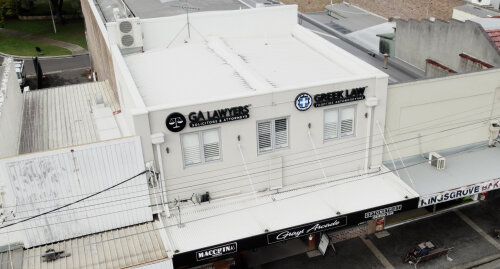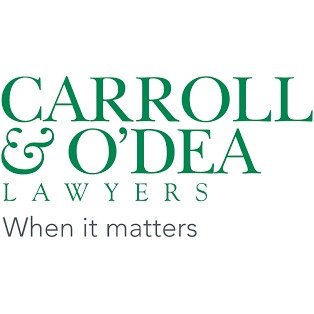Best Personal Injury Lawyers in Sydney
Share your needs with us, get contacted by law firms.
Free. Takes 2 min.
List of the best lawyers in Sydney, Australia
About Personal Injury Law in Sydney, Australia
Personal injury law in Sydney, Australia, encompasses legal disputes and claims that arise when an individual is harmed due to the negligence or wrongful conduct of another party. This area of law aims to help injured parties recover financial compensation for losses such as medical expenses, lost wages, and pain and suffering. Common cases include motor vehicle accidents, workplace injuries, public liability claims, and medical negligence. Lawyers specializing in personal injury are equipped to navigate the complexities of these cases and work towards securing fair compensation for their clients.
Why You May Need a Lawyer
Individuals may require legal assistance in personal injury cases for several reasons. Firstly, if you suffer an injury and there is contentious debate over liability, a lawyer can investigate, gather evidence, and build a strong case on your behalf. Secondly, insurance companies often aim to minimize payouts, and a lawyer can negotiate effectively to ensure you receive what you are entitled to. Additionally, understanding the legal processes and quantifying the compensation necessary to cover long-term impacts of the injury can be complex, requiring the expertise of a lawyer to navigate successfully. Lastly, legal representation can provide peace of mind, allowing you to focus on your recovery.
Local Laws Overview
Sydney, being part of New South Wales (NSW), operates under local laws specific to personal injury claims. Notably, the Motor Accidents Compensation Act governs motor vehicle accidents, with a focus on the compulsory third-party (CTP) insurance framework. The Workers Compensation Act regulates workplace accident claims, ensuring injured employees can access benefits and compensation. Public liability laws cover incidents occurring on public or private property due to negligence. It's important to be aware of strict time limits for making claims, known as limitation periods, which generally require action within three years from the date of injury. Engaging with a qualified lawyer early can help in navigating these legal requirements and deadlines.
Frequently Asked Questions
What is a personal injury claim?
A personal injury claim is a legal process undertaken by an individual who has been injured, either physically or psychologically, due to the negligence or wrongful act of another party.
Do I need a lawyer to file a personal injury claim?
While you are not required to have a lawyer, having legal representation can significantly increase the likelihood of a successful outcome. A lawyer can provide valuable expertise, handle negotiations, and represent you in court if necessary.
What compensation can I claim in a personal injury case?
Compensation may cover medical expenses, lost income, pain and suffering, and any long-term care or treatment that may be required. Specific entitlements depend on the nature of the injury and the circumstances of the case.
How long do I have to file a personal injury claim in Sydney?
In general, the statute of limitations for filing a personal injury claim in Sydney is three years from the date of the injury. Exceptions may apply, so it is recommended to seek legal advice promptly.
What if I'm injured in a car accident?
If you're injured in a car accident, you may be entitled to make a claim through the CTP insurance of the at-fault driver. It’s important to report the accident to the police and seek medical treatment immediately.
Can I make a claim if the accident was partially my fault?
Yes, you may still be able to make a claim even if you were partially responsible for the accident. The compensation may be reduced to reflect your level of fault.
What is the role of insurance companies in personal injury claims?
Insurance companies are often involved in settling claims, as they provide coverage for injuries under relevant insurance policies. They may negotiate settlements or provide compensation based on the policy terms.
How is pain and suffering compensation calculated?
Pain and suffering compensation is calculated based on the severity and impact of the injury on your life. Legal guidelines and precedents are often used to determine appropriate amounts.
What happens if my claim goes to court?
If your claim goes to court, your lawyer will represent you, presenting evidence and arguments to support your case. A judge or jury will then decide on the outcome.
Are there any upfront fees for hiring a personal injury lawyer?
Many personal injury lawyers work on a 'no win, no fee' basis, meaning you only pay legal fees if your case is successful. Discuss fee structures with your lawyer during an initial consultation.
Additional Resources
The following resources can provide further assistance and information: - LawAccess NSW: A government service offering free legal assistance over the phone. - NSW Bar Association: An association offering information and resources related to legal practitioner services. - NSW Legal Aid: Provides legal assistance to financially disadvantaged people in New South Wales. - Australian Lawyers Alliance: An organization dedicated to promoting justice, freedom, and the rights of individuals. - State Insurance Regulatory Authority (SIRA): The agency that regulates insurance and personal injury compensation schemes in NSW.
Next Steps
If you need legal assistance in personal injury, it's important to act quickly. Begin by gathering any evidence related to your injury, such as medical reports, accident records, or witness statements. Reach out to a qualified personal injury lawyer in Sydney to discuss your situation and determine the best course of action. Many firms offer initial consultations at no charge, allowing you to explore your options and understand your rights without upfront costs.
Lawzana helps you find the best lawyers and law firms in Sydney through a curated and pre-screened list of qualified legal professionals. Our platform offers rankings and detailed profiles of attorneys and law firms, allowing you to compare based on practice areas, including Personal Injury, experience, and client feedback.
Each profile includes a description of the firm's areas of practice, client reviews, team members and partners, year of establishment, spoken languages, office locations, contact information, social media presence, and any published articles or resources. Most firms on our platform speak English and are experienced in both local and international legal matters.
Get a quote from top-rated law firms in Sydney, Australia — quickly, securely, and without unnecessary hassle.
Disclaimer:
The information provided on this page is for general informational purposes only and does not constitute legal advice. While we strive to ensure the accuracy and relevance of the content, legal information may change over time, and interpretations of the law can vary. You should always consult with a qualified legal professional for advice specific to your situation.
We disclaim all liability for actions taken or not taken based on the content of this page. If you believe any information is incorrect or outdated, please contact us, and we will review and update it where appropriate.

















